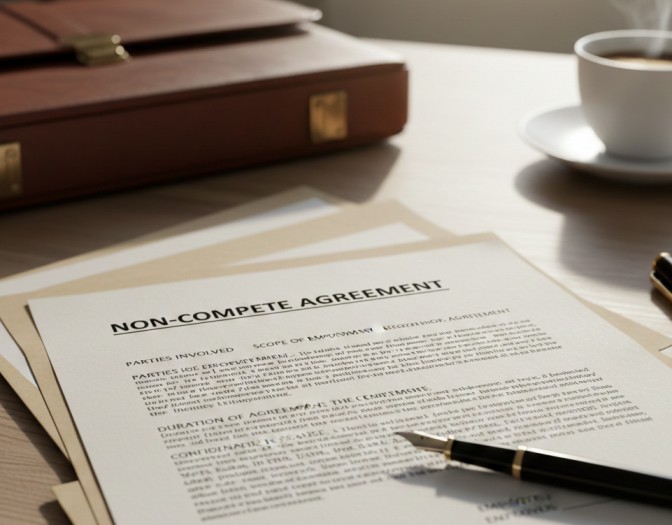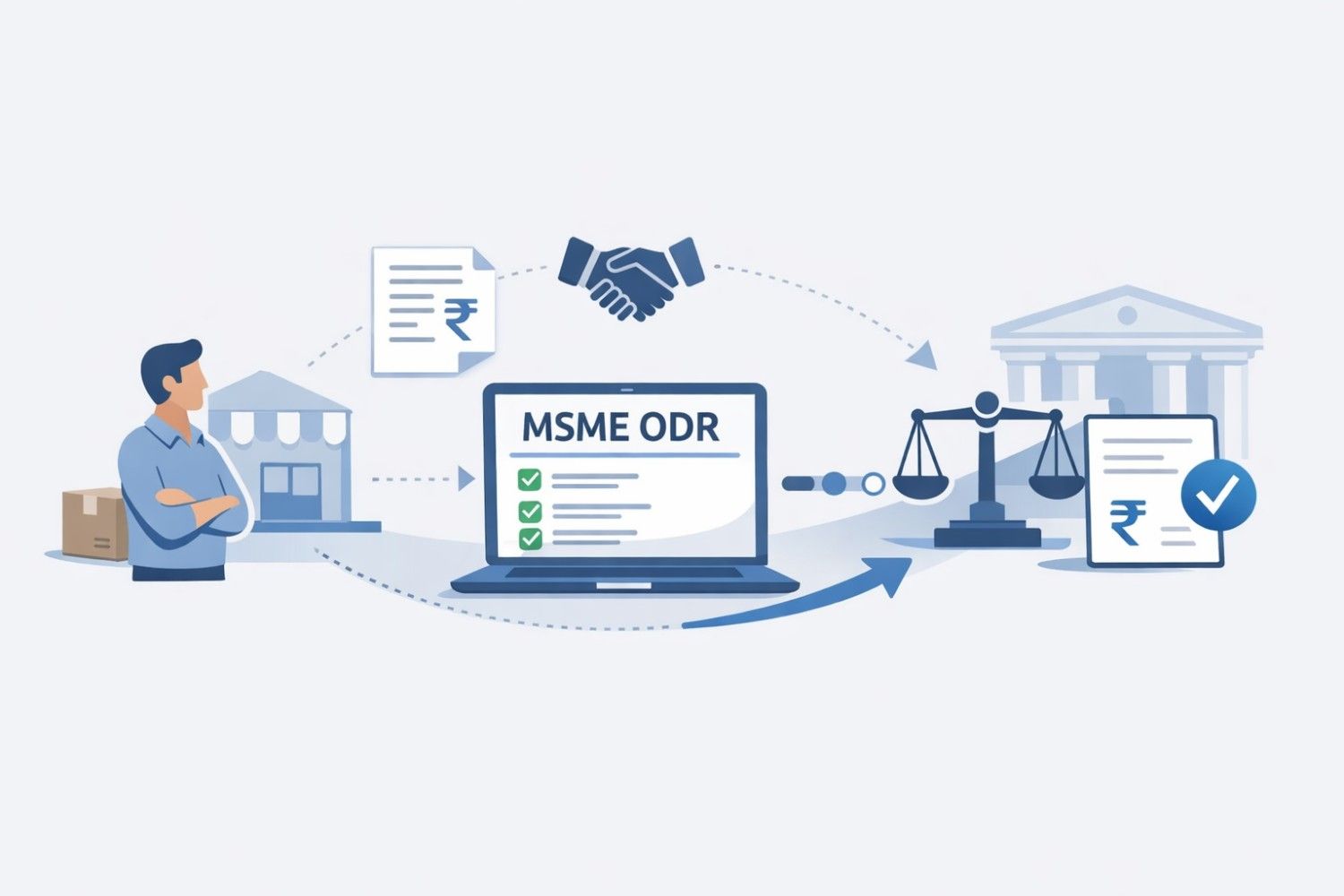Is Your Work Fuelling AI Without Consent?
By the SolvLegal Team
Published on: Sept. 15, 2025, 5:44 p.m.

India’s 2025 Copyright Crackdown and What Every MSME Must Know
The AI Revolution Has a Dark Side
We are currently living in a time of unimaginable digital advancement. Artificial Intelligence (‘AI’) is no longer a thing of science fiction. It is writing blogs for people, completing graphics design, automating customer service, composing music, and producing legal documents. AI is everywhere.
Of course, this transition comes at some cost. Behind every clever AI chatbot or smart image generator, is a huge pool of data. And where does the data come from? Well, there is a good chance it comes from you. It comes from your blogs. Your manuals. Your designs. Your photographs. Your case studies. Your slides. Your creativity.
In most instances, that data has been provided without permission.
For Indian Micro, Small, and Medium Enterprises (‘MSMEs’), this silent exploitation is becoming an increasing concern. After having invested time and money developing original content to create a point of difference in what has become an extremely competitive environment, many MSMEs are now seeing their work consumed by AI corporations without credit, licence or payment.
This blog will explore aspects of the controversy over AI and copyright in India. It will unpack the case of ANI Media v OpenAI, the new government moves in 2025, the limitations of existing laws, and what lies ahead for businesses and creators in India but more importantly, it will tell you what you as an MSME, need to do now.
AI’s Hunger for Data and the Hidden Victims
Training an AI model is not like installing software. It requires data - tons of data. Millions of documents, images, articles, designs, and posts are harvested off the internet into machine learning systems. The more data it ingests, the smarter it gets.
The problem is, that "training data" often includes copyright-protected works- with no permission from the rights owner.
Content is developed and created by inventors and enterprises, for multiple months, often years, to promote their work online. The upload of these contents is intended to attract customer engagement or encourage brand awareness not to be discreetly obtained for machine learning by OpenAI, Google, or Anthropic.
You may be thinking. "Is this happening in India?"
The answer, yes. And you probably don't even realize how vast this problem is.
The ANI Media v. OpenAI Case
In December 2024, ANI Media, an Indian media outlet, sued OpenAI for copyright infringement. At the heart of the dispute is ANI's claim that OpenAI used its vast repository of news articles, photographs, and videos without permission to train its large language models (‘LLMs’), including the one that powers the popular chatbot, ChatGPT
The Delhi High Court allowed the lawsuit to proceed pursuant to Sections 51 and 55 of the Indian Copyright Act, 1957, which references infringement and civil remedies. [R11]
These concerns were not just with ANI. NDTV, Indian Express, and Hindustan Times followed along to raise similar issues.
This was not just about news articles. This was about all types of digital content made by humans, especially the type of content that MSMEs utilize to build their brands.
Why This Should Worry MSMEs
You may not run a media house. You may not publish news reports. But if you're an MSME, you’re likely putting out valuable content regularly like, Product descriptions and catalogues, Instructional manuals, Blogs and thought leadership articles, Customer case studies, In-house training material, Marketing visuals and infographics, Brand identity designs, original research or surveys etc.
These pieces of content are exposed. Once shared, (especially with all linkbacks or watermark information), they’re pulled by data scrapers and crawlers as AI models compile their training materials. And here’s the real scare, you may never know your work is being used.
You’ll never receive a notification when a model uses your material for training. You won’t receive an email asking for your permission. You won’t receive a cut of the profits. All your hard creative work becomes free fuel for billion-dollar AI models.
The Legal Void: Copyright Act, 1957 Is Outdated
The India Copyright Act first passed into law in 1957. AI didn’t exist then. The internet didn’t exist then. The law was intended to protect human authorship. It defines authors as persons. It protects original literary, artistic, musical, and dramatic work created by persons. But if the creator isn’t a person, but is a machine, what does that mean?
Right now, Indian law:
● Does not recognise AI as an author.
● Does not clarify ownership of AI-generated or AI-assisted content.
● Does not define rights over data used to train AI models.
● Does not impose obligations on AI developers to seek consent or licenses.
This presents a significant loophole in the law. If a company blog is then used to train an AI chatbot that begins giving the same advice as your company does, could you have any legal rights infringed upon? No court could confidently answer this question—but not yet.
For MSMEs, this means their intellectual property (IP) is being used in a system with no rules.
May 2025: The Government Finally Acts
After months of increasing pressure and rising lawsuit threats, the Indian Government acted.
In May 2025, an expert committee was formed by the Department for Promotion of Industry and Internal Trade (DPIIT) under the Ministry of Commerce. Its charge? To modernize India's copyright framework catering to the AI era.
The 8-member panel consists of legal scholars, IP specialists, tech experts, and policymakers. Their objectives are:
● Define who owns AI-generated content
● Establish whether training AI on copyrighted data can be called “fair use”
● Draft new laws or amendments to plug the gaps
● Hold AI developers accountable for misuse
● Create a system of licensing or compensation for creators.
What the Government Is Saying Now
The DPIIT has already started issuing policy-level clarifications. And the word is out: AI companies have to take permission before using copyrighted material for training.
They also made it clear that "fair dealing" under Section 52 of the Copyright Act - which is frequently used to defend personal or educational use- does not apply to commercial scale AI training. It means that AI developers can no longer hide under old legal loopholes. Using any significant datasets of Indian content to train commercial AI systems will need permission, transparency, and probably payment.
India is now getting on the same page as the UK and EU with stronger data licensing norms for AI.
What's Coming: Draft Reforms and Chapter XII-A
So, what will the new copyright law look like? While the draft bill isn't expected until later this year, early indications are that there will be substantial changes. Here are the reforms that are anticipated:
● A new Chapter XII-A specifically for AI-generated content
● Clear definitions for “AI-generated” vs. “AI-assisted” works
● Ownership of copyright given to the human who directed or prompted the AI
● Mandatory disclosure of datasets used for training
● Royalty models or levies for content used in AI training
● Penalties for unauthorized use of copyrighted data
● Introduction of licensing systems to allow creators to monetize their IP in the AI ecosystem.
This will change everything for AI development in India. It impacts the entire process, from training to final use. If these recommendations materialise into actual legislation, MSMEs will have more power. They will have the chance to license what they create. They can ask to be paid for it. They can even say no to their data being used. It's about finding the right balance between innovation and protecting creators.
How Other Countries Are Handling It
India isn’t the only country facing this dilemma. Let’s look at how others are responding:
United Kingdom:
Under Section 9(3) of the UK Patents Act, if a computer-generated work has no human author, the "author" is the person who made arrangements to do anything necessary for the work to come into existence. This weighs human direction to give it legal significance.
United States:
The U.S. Copyright Office has given clear guidance on these questions if there is no human creativity, there is no copyright. AI-generated content is automatically excluded if there is no meaningful human involvement.
European Union:
The EU is establishing the most rigid standards. The standards use a model for transparency, with datasets needing to be disclosed and licensed through Collective Management Organisations (‘CMOs’). If a dataset has a copyright article, a license is mandated or the work needs to be removed.
India is expected to adopt some form of a hybrid model; ideally a means to achieve innovation while respecting creators and giving them due reward.
What MSMEs Should Do Right Now
You don’t have to wait for the law to protect your work. There are steps that you can take today to stay ahead.
If You’re a Creator of Content,
· Add copyright notices on all your blogs, images, designs, and reports,
· Use watermarks on visuals to prevent scraping,
· Avoid posting raw AI outputs without edits these are risky and might be legally unprotected,
· Maintain originality.
If you are implementing AI in your business then try to keep creative control over the content, save your work prompts so that you can prove your authorship, do not assume AI is free as you need to pay legal compensation if caught.
Start investing in legal protection as in today's time your business needs legal care against AI.
Final Thoughts: Don’t Let AI Eat Your Brand
AI is revolutionary. It will transform industries, accelerate growth, and unlock creative potential. But it cannot be built on theft. Your content, your work, is not free fuel.
Indian law is finally beginning to address these issues. But until reforms are implemented, the responsibility to protect your work falls on you.
Whether you're a design studio, a digital agency, a tech startup, or a traditional manufacturing MSME, your online content is a valuable asset. If it helps train a billion-dollar AI tool, you deserve compensation, recognition, and most of all, consent. The future of AI must respect human creativity.
MSMEs, Protect Your Content with SolvLegal
At SolvLegal, we help Indian businesses guard their IP in the AI age. From copyright registration to drafting content licenses, from watermarking strategies to AI usage audits—we’ve got your back.
SolvLegal is a modern legal-tech platform built to simplify and streamline legal services for businesses across India.
Whether you're a founder, a growing startup, or an established MSME, we make expert legal support accessible, fast, and affordable.
Here’s what we offer:
● Legally enforceable copyright notices and disclaimers
● Licensing templates to monetize your content for AI training
● Content tracking support
● Guidance on AI-generated work and IP risks
● Fast access to legal professionals who understand tech + law
ABOUT THE AUTHOR
This blog is authored by Shridansh Tripathi, a second-year law student at the Department of Legal Studies and Research, Barkatullah University, Bhopal.
REVIEWED BY,
This article was reviewed by Akhil Singh, a corporate lawyer with expertise in intellectual property rights, contract drafting, and compliance advisory. He is a tech-forward legal practitioner at SolvLegal, where he focuses on corporate compliance and data-privacy frameworks. His experience includes IT law and cross-border regulatory issues, and he assists businesses in safeguarding their innovations while strengthening their overall legal and compliance systems.
DISCLAIMER
The information provided in this article is for general educational purposes and does not constitute legal advice. Readers are encouraged to seek professional counsel before acting on any information herein. SolvLegal and the author disclaims any liability arising from reliance on this content.






